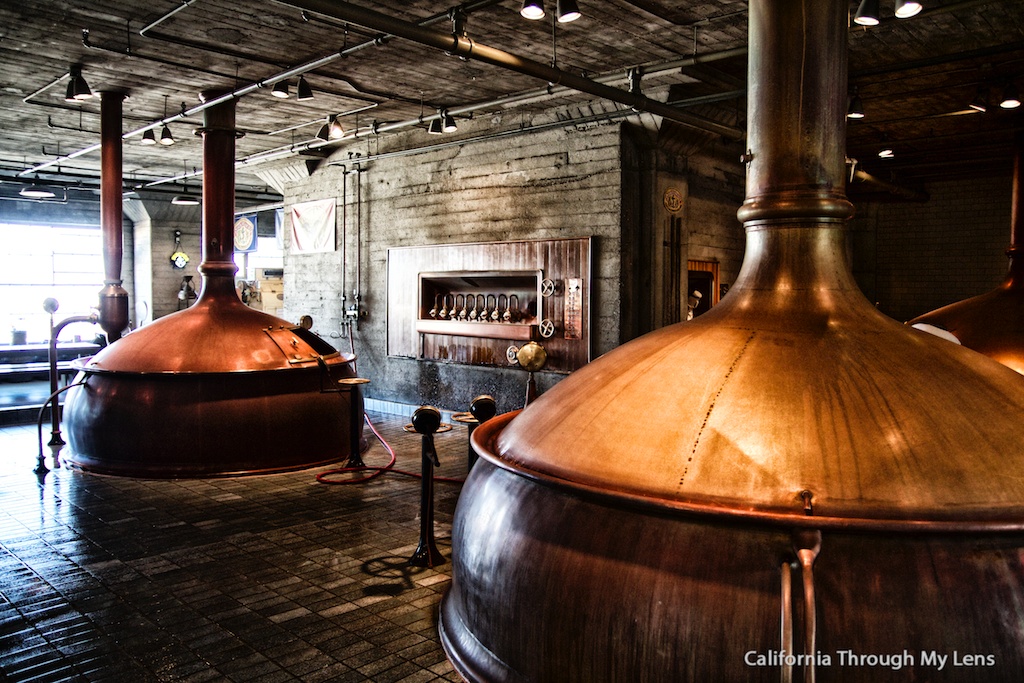The Demise Of Anchor Brewing Company: A Look Back At Its History And Influence

Table of Contents
A Pioneer of the Craft Beer Revolution
Anchor Brewing's story is intrinsically linked to the American craft beer revolution. Founded in 1896 in San Francisco, it's one of the oldest breweries in the US, a testament to its enduring (though now altered) presence. However, its true rise to prominence began with Fritz Maytag's acquisition in the 1960s. Maytag, a visionary, rescued the struggling brewery from near closure, injecting it with a renewed commitment to quality and traditional brewing methods – a stark contrast to the mass-produced beers dominant at the time.
-
A Legacy Forged: Founded long before the craft beer movement truly took hold, Anchor Brewing laid the groundwork for future generations. Its longevity alone is a testament to its enduring appeal, even before its modern resurgence.
-
The Anchor Steam Beer Renaissance: The introduction of Anchor Steam Beer, a unique California-style Lager, proved pivotal. This distinctive brew, with its subtly complex flavors and smooth finish, became an iconic representation of the craft brewing ethos. Its unique character set it apart, becoming a symbol of quality and craftsmanship within the burgeoning American beer market.
-
Influencing the Craft Beer Landscape: Anchor Brewing's commitment to quality ingredients and traditional techniques, coupled with its willingness to experiment, deeply influenced countless other craft breweries that followed in its footsteps. They helped to define what high-quality American craft beer could be. It championed innovation and set a new standard for the industry.
The Evolution and Expansion of Anchor Brewing
Anchor's success led to significant growth and diversification. The brewery expanded beyond its flagship Anchor Steam Beer, creating a diverse portfolio of seasonal and limited-release beers, experimenting with various styles and flavors. This expansion was partly driven by strategic acquisitions and brand extensions aimed at broader market appeal.
-
Beyond the Steam Beer: The introduction of new beers aimed to capture a wider range of consumer preferences. However, this diversification also presented challenges, particularly in balancing the heritage of the original Anchor Steam Beer with the demands of a more diverse market.
-
Growth and its Pitfalls: While expansion initially fueled success, it also introduced complexities. Maintaining quality control across a broader range of products while upholding the original Anchor brand values proved a significant hurdle.
-
Increasing Competition in the Craft Beer Market: The rapid growth of the craft beer market itself presented challenges. The entrance of larger craft breweries and even mega-breweries, with their significantly larger marketing budgets and distribution networks, intensified competition. This influx of players created a more saturated marketplace, making it harder for smaller, independent breweries to compete.
The Factors Contributing to Anchor's Decline
The sale of Anchor Brewing to Sapporo Holdings wasn't a sudden event; it was the culmination of several converging factors. Increased competition from both larger craft breweries and mega-breweries put immense pressure on Anchor’s profitability. Consumer preferences shifted, demanding new flavor profiles and styles, making it harder for even established brands to maintain market share.
-
The Competitive Squeeze: The rise of massive craft breweries significantly changed the landscape, leading to a more difficult environment for smaller, independent players.
-
Evolving Consumer Tastes: The craft beer market is dynamic, with consumer preferences changing constantly. Anchor, despite its attempts to diversify, struggled to keep pace with these evolving tastes completely.
-
The Impact of the COVID-19 Pandemic: The pandemic severely impacted the hospitality sector, dramatically reducing on-premise beer sales, and placed enormous strain on many breweries.
-
Ownership and Management Changes: Internal factors, including changes in ownership and management strategies, also played a role in the company's eventual sale. These changes, while perhaps well-intentioned, may have unintentionally diluted the brand's unique character.
The Sale to Sapporo and the Future of Anchor Brewing
The acquisition by Sapporo Holdings, a Japanese beverage company, marked a significant turning point. Sapporo's decision to alter Anchor's brewing processes and potentially reduce its focus on traditional methods sparked concerns among craft beer enthusiasts. The fear is that the unique character and heritage of Anchor, carefully cultivated over decades, may be lost, potentially setting a precedent for other independent breweries.
-
A Shift in Brewing Philosophy: The alteration of brewing processes raises concerns about the future taste and quality of Anchor beers. Many worry that the change will significantly compromise the authenticity that long defined the brand.
-
Impact on Independent Craft Breweries: The Anchor sale serves as a warning for other independent craft breweries, highlighting the vulnerabilities faced in the face of increasing corporate influence and market pressure. It raises questions about the long-term survival of small, independent players in a rapidly consolidating market.
Conclusion
The story of Anchor Brewing Company serves as a cautionary tale for the craft beer industry. While its pioneering spirit and influential role in the American craft beer revolution are undeniable, its decline highlights the challenges faced by even iconic brands in navigating the ever-changing landscape of the brewing market. The sale to Sapporo and the subsequent changes to its brewing practices represent a significant loss for those who value traditional brewing and the unique character of Anchor Steam Beer. The decline of Anchor Brewing is a stark reminder of the pressures that even established craft breweries face in today's market.
Let's reflect on the legacy of Anchor Brewing and support the independent craft breweries that continue to champion quality, innovation, and the unique spirit of handcrafted beer. Learn more about the history of Anchor Brewing and other influential breweries to better understand the challenges and triumphs in the craft beer industry, and help ensure the survival of smaller, independent craft breweries.

Featured Posts
-
 Robust Poll Data System Ensuring Election Integrity
May 02, 2025
Robust Poll Data System Ensuring Election Integrity
May 02, 2025 -
 Pancake Day Origins Customs And Why We Celebrate Shrove Tuesday
May 02, 2025
Pancake Day Origins Customs And Why We Celebrate Shrove Tuesday
May 02, 2025 -
 School Desegregation Order Terminated Examining The Legal And Social Ramifications
May 02, 2025
School Desegregation Order Terminated Examining The Legal And Social Ramifications
May 02, 2025 -
 Significant Saudi Regulatory Shift Unlocking A Booming Abs Market
May 02, 2025
Significant Saudi Regulatory Shift Unlocking A Booming Abs Market
May 02, 2025 -
 Find The Winning Numbers Lotto Lotto Plus 1 Lotto Plus 2 Results
May 02, 2025
Find The Winning Numbers Lotto Lotto Plus 1 Lotto Plus 2 Results
May 02, 2025
